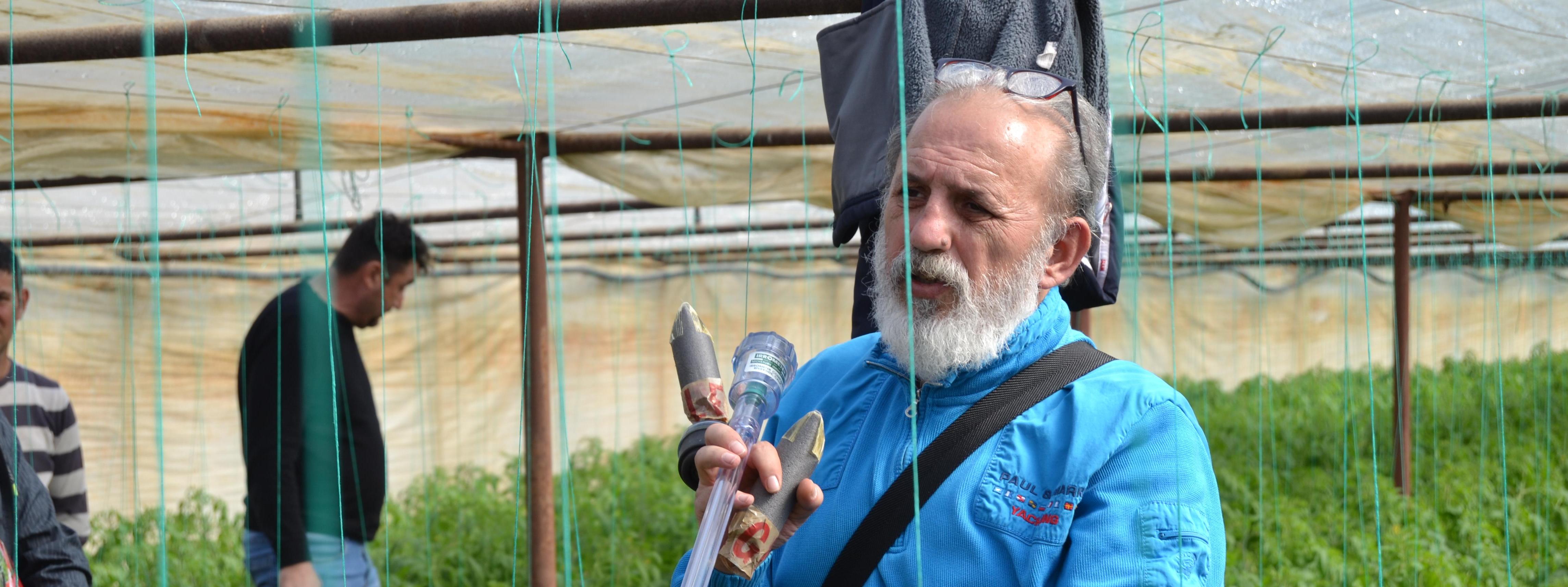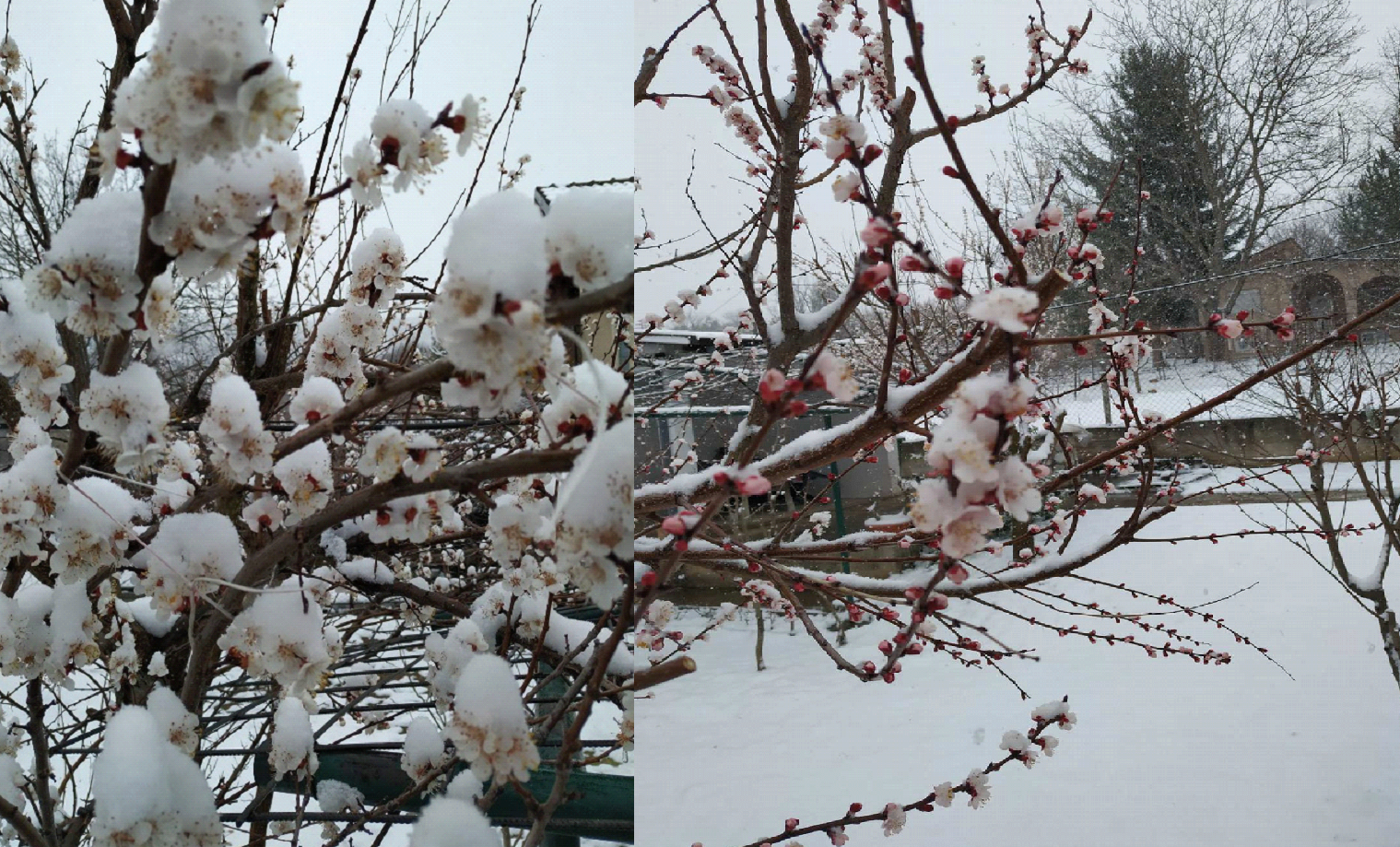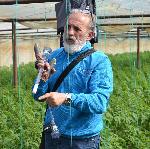SHOULD WE EXPECT SOMETHING SIMILAR TO COVID-19 IN AGRICULTURE AFFECTED BY CLIMATE CHANGE?

SHOULD WE EXPECT SOMETHING SIMILAR TO COVID-19 IN AGRICULTURE AFFECTED BY CLIMATE CHANGE?
Agriculture is very exposed to the impact of climate change, primarily due to the fact that agricultural activities are carried out outdoors and directly depend on the climate. On the other hand, agriculture participates in creating climate change with significant greenhouse gas emissions, primarily through the release of methane and nitrogen oxides, which are among the most powerful greenhouse gases. Furthermore, agriculture can greatly contribute to mitigating climate change by reducing greenhouse gas emissions, but also by capturing carbon dioxide from the atmosphere and redistributing it to biomass and soil. Finally, agriculture is the only sector that has the potential of being a greenhouse gas emitter and concurrently capturing huge amounts of carbon dioxide over a long period of time, by way of proper implementation of agro-technical measures that will increase the organic content in the soil in the long run.
Hence, the agricultural sector is probably at the moment the most adversely affected sector by the negative impact of climate change. Agriculture has a multiple role, so the approach to mitigation and sector adaptation measures should be much bolder and more effective so as to reduce negative effects while utilizing its strong potential to minimize the problem.
But let us first see how climate change affects agriculture, primarily through:
- change in timing, quantity and intensity of precipitation,
- rise in temperatures,
- variability in the vegetation period and emergence of certain phenophases,
- extreme weather events such as heat waves, droughts, severe storms and floods.
Maybe such phenomena coupled with the increased concentration of carbon dioxide in the atmosphere could be a positive development in certain northern European regions, but unfortunately that will not be the case in our agricultural production. In our country, as in most parts of Southern Europe, these factors are expected to have a negative impact and thus further increase vulnerability of the agricultural sector that cannot cope with the current natural conditions and is characterized by low productivity.
For a long time we have believed that farmers would be able to cope with climate change on their own, that they have the experience and knowledge on how to produce in both wet and dry years, as they have produced at lower and higher average temperatures. As we wait for them to cope, the problem grows bigger than agricultural producers can handle, and is financially more demanding than they can sustain. Food production is of strategic interest, perhaps the most important of all. Food must be available in sufficient quantities, be cheap and meet a number of quality and safety standards. Each of us, several times a day, consumes a certain quantity of food. It must be safe and it must be available in sufficient quantities for all of us. Don't even try to imagine what could happen if the food rans out, if it became inaccessible to larger parts of the population.
And while we believe that everything will be fine, serious changes are taking place that could lead to very unpredictable agricultural production. According to a recent report by the European Environment Agency (EEA) (Adaptation to climate change in the agricultural sector in Europe), climate change will reduce crop and livestock production, even to the extent that it may be completely abandoned in some parts of Southern Europe and the Mediterranean. This study, conducted by the European Commission's Joint Research Center, states that climate change adjustment must be a top priority for the European Union's agricultural sector so as to make it more resilient to the expected climate, especially to extreme climate conditions such as droughts, heat waves and floods.

Dolno Sonje, 23.03.2020, Author Ljubisha Jovanoski
The same report states that extreme weather events are already causing serious economic losses in EU agriculture, particularly due to summer heat waves, which has a negative impact in 2018 and 2019. Positive effects expected by improving plant production conditions in parts of Northern and Central Europe will be much lower than negative effects caused by an increasing number of extreme events in Southern Europe. The study predicts that Southern Europe will face declining yields in non-irrigated crops by up to 50% by 2050 and a reduction in the economic value of arable land from over 80% by 2100. However, this is not expected to have a serious impact on the fast food supply and availability in the EU, but the growing demand for food around the world could put pressure on food prices in the coming decades.
Extreme weather events are already causing serious economic losses in EU agriculture, especially caused by summer heat waves in 2018 and 2019. Climate change is known to have some positive effects by improving the conditions for extensive production in parts of northern and central Europe, however they are likely to be much smaller than the negative effects caused by the growing number of extreme events in southern Europe.
And extreme weather is not the only problem. A group of researchers from the European Commission's Joint Research Center, led by Andrei Ceglar, publishes a paper in the journal Earth's Future on the observed migration of European agro-climate zones to the north. This has been happening for a long time. The authors state that agro-climate zones in Eastern Europe have been moving north for 100 years at a speed of 100 km in 10 years. It is expected that in the coming period, under the influence of climate change, this migration will double in speed. You can read more about how this happens and whether the Republic of North Macedonia is affected by this process at the following link.
Out of curiosity, to see if I should fear this phenomenon, I did quick measuring and saw that the south border of my homeland was less than 1000 km off the coastal desert of North Africa. How many years is that?
Again, this is not all. Climate change is a complex process, everything is changing, everything is in movement, some things we see, some things we don't. We invest too little in research that will help us see what is really happening in our country. If we had data and capacities, we might see a more vivid picture, but very unlikely. Anyway, it was not my intention to criticize and talk about who should do it, who can do it, who is able to do it. I will only conclude that, as is usually the case with us, nothing is stored in one place and we are all waiting for someone else to do something, and we excuse ourselves because we are missing something or we really can't do it.
Particularly significant is the issue of plant diseases and pests. There is various data in the literature. Climate change can affect both the host and the pathogen. For example, a certain temperature may encourage the development of a pathogen, but the same temperature may cause the host to have a greater resilience to pathogenic infections. Thus, wheat and oats become more susceptible to rust as the temperature rises, while in the same conditions some types of fodder crops become more resistant. In addition, changes in temperature as well as changes in CO2 can cause certain pests to have 1 to 5 additional generations in just one season, which increases the risk of causing damage to crops. It is also stated that the concentration of mycotoxins created by the fungus Fusarium spp. increases if higher humidity and temperature prevail during harvesting. Wet conditions and higher temperatures generally have a positive effect on weed propagation and growth.
And before I tell you "Climate changes – change yourself" I will dwell on another issue, which may be relevant at this time. COVID-19 has taken over our thoughts, family and social life. It became more than a disease; it became a reason to change habits. Should we expect something similar in the agricultural sector? Is there anything similar for plants, pets??? It is sure that climate change brings with it the emergence of new diseases and new pests in agriculture. I assume you remember the bluetongue and the nodular prurigo diseases that appeared here for the first time some time ago. For your information only, the farmers from Strumica, and even wider, have been struggling for a long time now to cope with a new pest, called Tuta Absoluta in Latin, or tomato leaf miner in Macedonian, originating from South America. Some time ago I was part of a discussion among several agricultural producers who discussed a new sort of thrips. Put plainly, the climate is changing, climate zones are moving north, and many diseases and pests in plants and domestic animals are spreading to the north. I tried to answer the question if a situation similar to that of COVID-19 is possible in agriculture. I could not find a specific answer, but I realized that in both plant diseases and diseases of domestic animals, the epidemiology is similar to that of humans. But, veterinary medicine and animal husbandry, as well as plant protection, allow for measures that are absolutely unacceptable for human medicine. Measures are really extreme and often involve destruction of crops or plantations, destruction of entire flocks and many other milder measures.
This is only a small fragment of more or less well-known problems that climate change brings with it to agricultural producers. Climate change is a problem for everyone, not only for producers, for us the food consumers as well, who are looking for higher standards in increasingly complicated production conditions. Therefore, agricultural producers must not be put aside, they need support. And the best support is to provide them with a functional system that would allow them to gain new knowledge and skills to combat climate change. I have always believed that the solution lies in knowledge, skills and the willingness to keep moving forward.
I said I would greet you with the slogan "Climate changes – change yourself". Now, for a change, try and think what #ClimateAction you could take.
-
Корисни линкови
26-01-2021 -
Справување со климатските промени и загадувањето на воздухот во градот Скопје
29-04-2018 -
Финансирање во климата
28-01-2022 -
Микронаративи
08-06-2022
{{"article.lastestPosts"|translate}}
-
Нови финансирања за унапредување на природата и биолошката разновидност на Зелената агенда за Западен Балкан
11-03-2025 -
Започна проектот за развој на 1-от и 2-от двогодишен извештај за транспарентност и 5-от национален извештај за климатски промени на С.Македонија
04-03-2025 -
Земјоделски форум за климатски промени: Се изнаоѓаат решенија за поголема климатска отпроност на заемјоделието
02-12-2024 -
Заврши COP29, центарален фокус на финасирањето за климата
02-12-2024




 Мод за знаковен јазик
Мод за знаковен јазик Говорен асистент
Говорен асистент Означи линкови
Означи линкови

 Зголеми маус
Зголеми маус